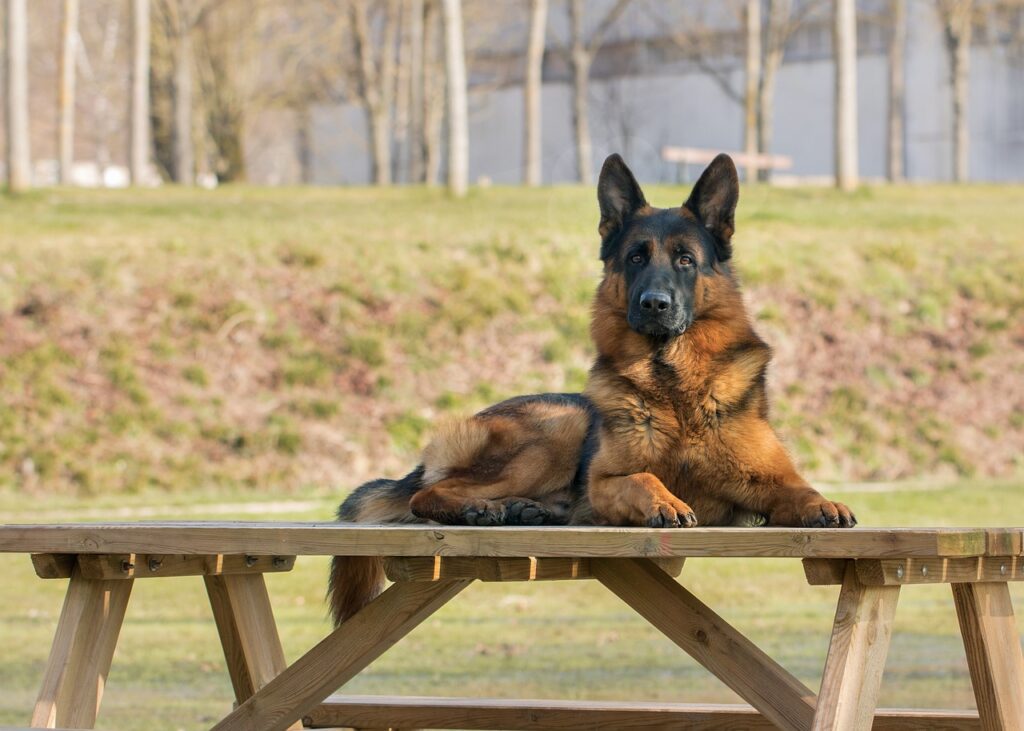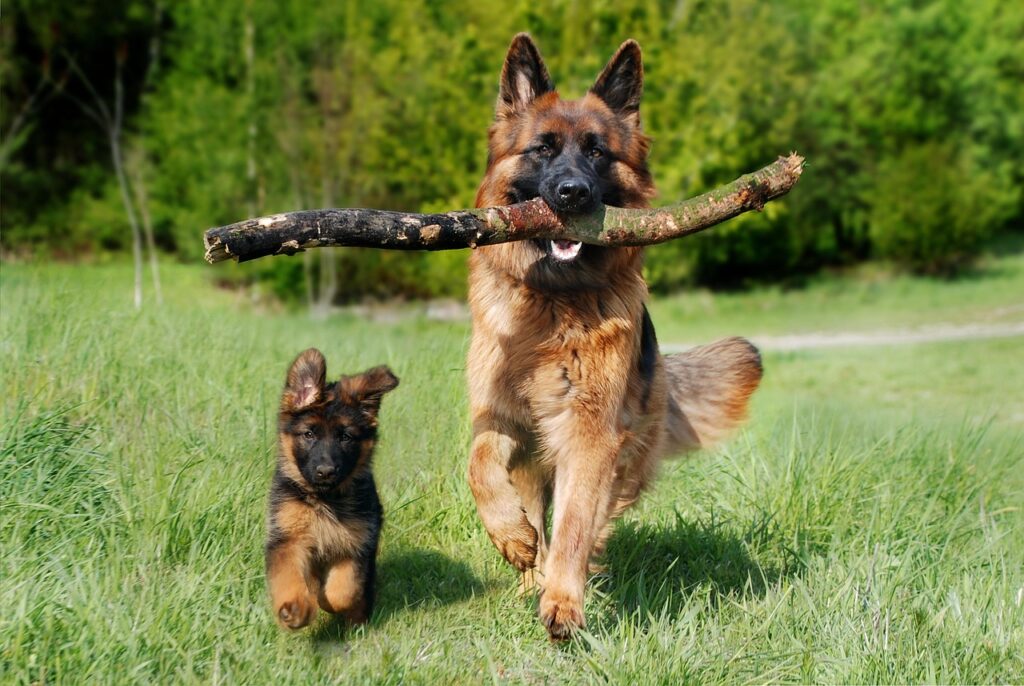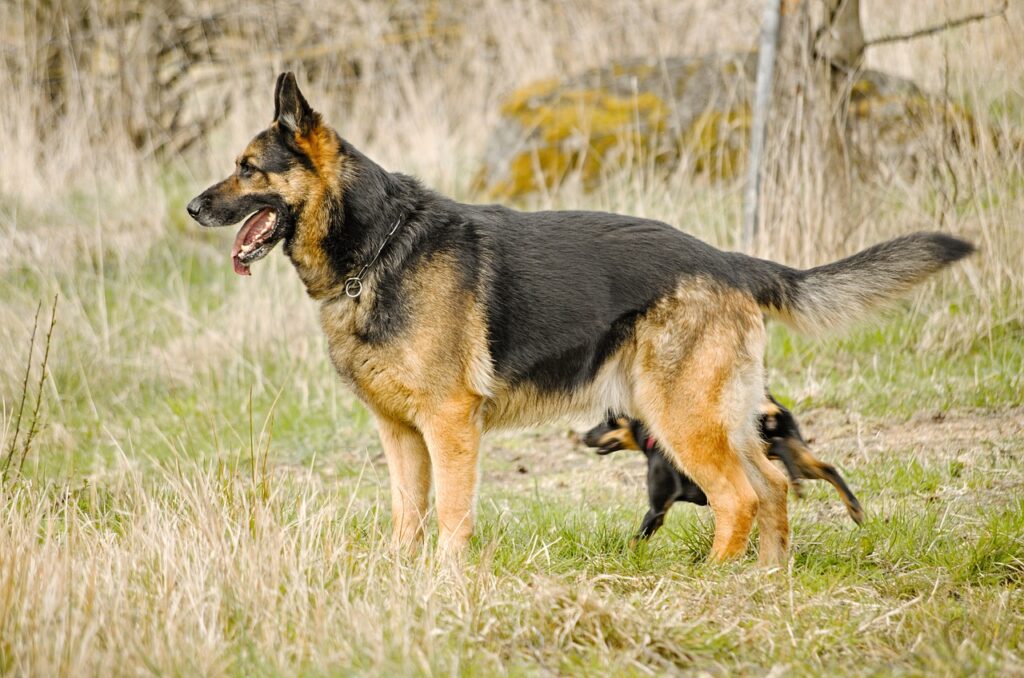Discover the German Shepherd’s loyalty, intelligence, and training potential. Learn why this breed is the ultimate companion for families and individuals!
The German Shepherd is one of the most beloved and versatile dog breeds in the world. Known for their loyalty, intelligence, and courage, these dogs have captured the hearts of countless families and professionals alike. Whether you’re considering adopting a German Shepherd or simply want to learn more about this remarkable breed, this guide will walk you through everything you need to know-from their history to training tips and health considerations.

A Brief History of German Shepherds
The German Shepherd breed originated in the late 19th century in Germany, where Captain Max von Stephanitz sought to create the ideal working dog. He focused on developing a breed with unmatched intelligence, strength, and versatility. The result was the German Shepherd, a dog capable of excelling in herding, guarding, and assisting with various tasks.
During World War I and World War II, German Shepherds served as messenger dogs, search-and-rescue aids, and guards, solidifying their reputation as dependable and brave companions. Today, they are popular not only as family pets but also as police, military, and service dogs.
Characteristics of a German Shepherd
1. Physical Traits
- Size: German Shepherds are medium to large-sized dogs, with males typically weighing 65-90 pounds and females 50-70 pounds.
- Coat: They have a double coat—a dense undercoat and a weather-resistant outer coat. Coat colors range from black and tan to sable and all black.
- Appearance: German Shepherds are known for their strong, athletic build, erect ears, and bushy tails.
2. Temperament
German Shepherds are highly intelligent and eager to please, making them one of the easiest breeds to train. They are:
- Loyal: Devoted to their families and often protective.
- Alert: Always on guard, which makes them excellent watchdogs.
- Energetic: They require plenty of physical and mental stimulation to stay happy.
3. Lifespan
On average, German Shepherds live 9-13 years. Proper care, diet, and regular veterinary checkups can help maximize their lifespan.

Why Choose a German Shepherd?
1. Family Pet
German Shepherds are wonderful family companions. Their protective instincts make them excellent guardians, and their playful nature means they get along well with children.
2. Working Abilities
These dogs are natural workers, excelling in roles such as:
- Police and military service
- Search and rescue
- Guide dogs for the visually impaired
3. Adaptability
Despite their size, German Shepherds can adapt to various living environments, provided they receive enough exercise and stimulation.
Training Your German Shepherd
Training a German Shepherd can be both rewarding and enjoyable due to their high intelligence and willingness to learn. Here are some tips to get you started:
1. Start Early
Begin training and socialization as early as possible. Expose your puppy to different people, environments, and situations to build their confidence.
2. Use Positive Reinforcement
Reward-based training methods work best with German Shepherds. Use treats, praise, and playtime to reinforce good behavior.
3. Teach Basic Commands
Focus on essential commands like:
- Sit
- Stay
- Come
- Leave it
4. Provide Mental Stimulation
Engage their minds with puzzle toys, obedience training, and advanced tricks. German Shepherds thrive when they have tasks to complete.
5. Be Consistent
Consistency is key when training. Set clear rules and stick to them to avoid confusion.
Exercise and Activity Needs
German Shepherds are high-energy dogs that need daily physical and mental exercise. Without adequate activity, they may become bored and develop behavioral issues.
1. Physical Exercise
- Aim for at least 60-90 minutes of exercise daily. This can include walks, runs, or playtime in the yard.
- Activities like fetch, frisbee, and agility training are great options.
2. Mental Stimulation
- Invest in interactive toys or games.
- Try obedience or agility classes to keep their minds sharp.
Common Health Concerns
Like all breeds, German Shepherds are prone to certain health issues. Being aware of these can help you take preventive measures:
1. Hip and Elbow Dysplasia
These hereditary conditions affect the joints, leading to pain and mobility issues. Regular vet checkups and maintaining a healthy weight can help.
2. Degenerative Myelopathy
This neurological condition affects the spinal cord and can cause hind limb weakness. While there’s no cure, physical therapy can improve quality of life.
3. Bloat (Gastric Dilatation-Volvulus)
Bloat is a serious condition where the stomach fills with gas and twists. Feeding smaller meals and avoiding vigorous exercise after eating can reduce the risk.
4. Allergies
German Shepherds can be prone to skin and food allergies. Work with your vet to identify triggers and manage symptoms.

Diet and Nutrition
A balanced diet is essential for keeping your German Shepherd healthy and active. Here’s what you need to know:
1. High-Quality Dog Food
Choose a premium dog food with high protein content. Look for brands that use real meat as the primary ingredient.
2. Portion Control
Avoid overfeeding by sticking to the recommended serving sizes. Obesity can exacerbate joint issues.
3. Supplements
Consider supplements like glucosamine and fish oil to support joint health and a shiny coat.
Fun Activities to Do with Your German Shepherd
1. Hiking Adventures
German Shepherds love exploring the outdoors. Take them on hiking trails for a physically and mentally stimulating experience.
2. Dog Sports
Participate in dog sports like agility, obedience, or herding trials. These activities challenge their minds and strengthen your bond.
3. Swimming
While not all German Shepherds love water, many enjoy swimming. It’s a great low-impact exercise option.
4. Teach New Tricks
Keep your dog engaged by teaching advanced tricks or commands. They’ll love the mental challenge.
Real-Life Stories
Max the Hero
Max, a German Shepherd from California, became a local hero when he alerted his family to a house fire. Thanks to his quick actions, everyone escaped unharmed.
Luna the Service Dog
Luna, a trained service dog, has been instrumental in helping her owner manage PTSD. Her loyalty and attentiveness have made a world of difference.
Final Thoughts
German Shepherds are more than just pets; they are loyal companions and skilled workers. With proper care, training, and love, these dogs can enrich your life in countless ways. Whether you’re looking for a family pet, a working partner, or a loyal friend, the German Shepherd is an excellent choice.
If you’re ready to welcome a German Shepherd into your life, be prepared for a journey filled with joy, adventure, and unwavering loyalty. Remember, a well-cared-for German Shepherd will give you their all-and then some.
Snuggle up with the cutest German Shepherd stuffed animal – the ultimate soft toy gift for kids and dog lovers! -> Click here!
